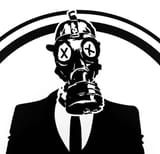Search Results
7/7/2025, 9:29:41 PM
>>95958319
>>96033122
So if a character gets a bad calamity roll, their next roll range decreases by 1, which not only acts as a standin for health, but makes it more likely that the next bad thing will happen. As the odds go from 50/50 to 40/60 and so on. Actions like resting, cadging a smoke, drinking, and drug abuse can play into this as well, increasing success in one area while making huge trouble more likely later on, or being an expensive habit.
The game was set 10 years into a zombie apocalypse, and so most of the population had already turned into zombies, while most of the resources had been used up. So there was no gasoline, little food and less ammunition, which made trade a necessity. Like real life, the only thing that would keep people alive when resources become scarce is commerce. This also let the players have a reason to go on missions, scavenge and investigate, because, unlike communist fare like The Walking Dead, players in the merchant universe owned property, and got rewards for success.
In the whole of TWD, no one ever uses money, or has motivation to do anything except as part of a sense of gang loyalty, making the red shirts completely expendible. With the Merchant, there was conflict, but it was always written as ridiculous and counterproductive. The survivors always got paid, and enriched.
In that way, the game was centered around economy, and work as much as it was around horror. The horrifying aspect was the ways that other people had gone savage, or had subscribed to some apocalyptic notion of transhumanism or malthusianism. The bad guys are the ones who actively seek to kill humans.
The ghouls/zombies were inexhaustable, and could be summoned at any time, in any quantity. I wanted the situation to be realistic, as much as that might require a suspension of disbelief. So i didn't go for fast zombies, or super zombies, but just slow ones. You could kill as many as you like, and one small noise later there would be 10 more.
>>96033122
So if a character gets a bad calamity roll, their next roll range decreases by 1, which not only acts as a standin for health, but makes it more likely that the next bad thing will happen. As the odds go from 50/50 to 40/60 and so on. Actions like resting, cadging a smoke, drinking, and drug abuse can play into this as well, increasing success in one area while making huge trouble more likely later on, or being an expensive habit.
The game was set 10 years into a zombie apocalypse, and so most of the population had already turned into zombies, while most of the resources had been used up. So there was no gasoline, little food and less ammunition, which made trade a necessity. Like real life, the only thing that would keep people alive when resources become scarce is commerce. This also let the players have a reason to go on missions, scavenge and investigate, because, unlike communist fare like The Walking Dead, players in the merchant universe owned property, and got rewards for success.
In the whole of TWD, no one ever uses money, or has motivation to do anything except as part of a sense of gang loyalty, making the red shirts completely expendible. With the Merchant, there was conflict, but it was always written as ridiculous and counterproductive. The survivors always got paid, and enriched.
In that way, the game was centered around economy, and work as much as it was around horror. The horrifying aspect was the ways that other people had gone savage, or had subscribed to some apocalyptic notion of transhumanism or malthusianism. The bad guys are the ones who actively seek to kill humans.
The ghouls/zombies were inexhaustable, and could be summoned at any time, in any quantity. I wanted the situation to be realistic, as much as that might require a suspension of disbelief. So i didn't go for fast zombies, or super zombies, but just slow ones. You could kill as many as you like, and one small noise later there would be 10 more.
Page 1
